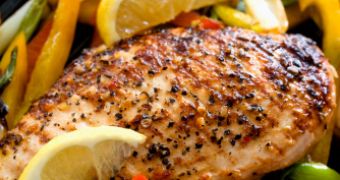Experts repeatedly sound the alarm on eating disorders such as anorexia, bulimia or the dangers of not heating healthy and indulging in too many high-fat foods. However, that’s not to say there aren’t some risks to healthy eating too, especially if taken to the extreme. It’s a condition called orthorexia nervosa and it is just as deadly as anorexia in some situations. It is also a phenomenon on the rise, the Daily Mail says.
According to health experts, the number of people who suffer from orthorexia nervosa is on the rise, which means some sort of warning should be issued for them too, so as to prevent the spreading of the phenomenon. What we’re dealing with here, experts say, is a condition where, out of focusing on eating solely healthy, “pure” foods, the sufferer eliminates entire groups of foods from his or her nutrition, with devastating effects on his or her health either on the short term or in the long run.
“I am definitely seeing significantly more orthorexics than just a few years ago. Other eating disorders focus on the quantity of food but orthorexics can be overweight or look normal. They are solely concerned with the quality of the food they are putting in their bodies, refining and restricting their diets according to their personal understanding of which foods are truly ‘pure.’” Ursula Philpot, chairman of the British Dietetic Association’s mental health group, tells the Mail.
As a rule, orthorexics are over 30 and have relatively high incomes, otherwise they couldn’t afford to pay absurd amounts of money on food that fits their standards for “pure.” Experts say that the rules by which one food is deemed pure or not may vary from individual to individual, and depend either on personal tastes or on the kind of education that person has had. Either way, most orthorexics spent a lot of their spare time reading up on the latest on food and nutrition, making up menus and planning each and every one of their meals, up to the point where this makes socializing increasingly difficult and ruins relationships.
The fact that our culture is one of fast food only makes the orthorexia nervosa a more dangerous threat, because rejection of the former might push people towards the latter. “There is a fine line between people who think they are taking care of themselves by manipulating their diet and those who have orthorexia. I see people around me who have no idea they have this disorder. I see it in my practice and I see it in my friends and colleagues. It’s everywhere, from people who think it’s normal if their friends stop eating entire food groups, to the trainers in the gym who [promote] certain foods to enhance performance, to the proliferation of nutritionists, dieticians and naturopaths.” Deanne Jade, founder of the National Centre for Eating Disorders, explains.

 14 DAY TRIAL //
14 DAY TRIAL //